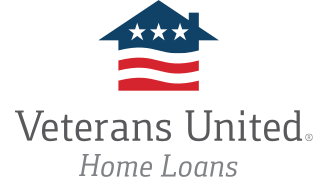VA Loan Forbearance and Other Loss Mitigation Options
The COVID-19 pandemic caused significant financial challenges for many Veterans and military members. If you’ve faced a job loss, income reduction or other financial setbacks, you could be struggling to make monthly mortgage payments on your home.
There are mortgage relief options to help you avoid foreclosure. One option is VA loan forbearance, which is an agreement with your loan servicers that provides temporary relief from your mortgage payments.
Understanding VA Loan Forbearance
A forbearance is a temporary pause, deferral or reduction of your monthly home mortgage payments. During the forbearance period, your lender or provider accepts agreed-upon reduced or no payments on your loan.
Forbearances are offered by lenders or mortgage servicers, including those approved to offer Department of Veterans Affairs (VA) loans. The process is available to borrowers who face specific hardships and are unable to meet their monthly mortgage payments.
VA Loan Forbearance and the CARES Act
The Coronavirus Aid, Relief and Economic Security Act of 2020 (CARES) was a $2.2 trillion bill passed to reduce the economic hardships caused by the COVID-19 pandemic. The bill provides numerous protections for Americans, including VA loan forbearance.
Under the CARES Act, loan servicers and lenders are required to offer temporary forbearances to homeowners facing financial hardships due to the pandemic. These hardships may be caused by job loss, a decrease in income, difficulty finding childcare or other similar situations.
If you request forbearance on your VA loan under the CARES Act, your mortgage lender must approve your request for up to six months. During this time, you're relieved of your obligation to make some or all of your monthly payments. You won't face repercussions for deferring or reducing your payments.
If you need additional time to resolve any hardships you might face, the VA also requires your mortgage lender to allow for a six-month extension on your forbearance. This gives you a full year of forbearance relief in total, either in the form of reduced or paused mortgage payments.
Will I Have to Repay Forbearance?
While forbearance can offer temporary relief from the costs of your mortgage payments, it doesn't mean you're off the hook. Your payments aren't waived or forgiven. Rather, they are on hold during the forbearance period. You still need to eventually repay the forbearance in full, but that doesn’t have to happen all at once.
The goal of forbearance is to give you time to resolve the issue that is causing you to be unable to pay your monthly mortgage payments. Once that issue is resolved, or once the forbearance period is over, you are expected to pay back what you owe at the end of your loan. Talk with your servicer about how to best repay the payments you missed. Options could include a repayment plan or a loan modification.
Will VA Loan Forbearance Hurt My Credit Score?
VA loan forbearance under the CARES Act will not hurt your credit score. The CARES Act protections specifically state that you will not face adverse credit reporting due to a pandemic-related forbearance.
That said, your credit score may be adversely affected if you were already past due on your mortgage payments prior to the forbearance request. In some cases, your mortgage company might be required to maintain the delinquent status until your past-due payments are made current.
Other Loss Mitigation Options
The forbearance protections under the CARES Act have been extended several times. Additionally, other loss mitigation options are available to help you avoid foreclosure.
Repayment Plan
If you are behind on your mortgage payments, your lender may allow you to enter into a repayment plan to help you catch up on your loan payments. With a repayment plan, the past-due amount will be spread out over several months and added to your current mortgage payments. Your payments will temporarily increase as you pay back what you owe, but your loan will be current once the past-due amount is paid off.
Loan Modification
You may also have the option of a VA loan modification, which is a change that is made to the original terms of your mortgage loan. This change could include a new interest rate, a change to the loan structure, or a new loan term, with the past-due payments rolled into the new loan
Short Sale
A short sale may be another option to avoid foreclosure and can be especially useful when you’re underwater on your home loan. To initiate a short sale, your lender will have to agree to let you sell your home for less than what you owe on the mortgage.
Short sales will have a negative impact on your credit. Veterans also lose whatever VA loan entitlement they utilized on the property.
Deed in Lieu of Foreclosure
Another option is a deed-in-lieu of foreclosure. Through this arrangement, you turn ownership of your home over to the lender and avoid foreclosure. Again, this process might be considered preferable to the hassles of foreclosure, so if you are behind on your mortgage payments, it may be worth discussing with your lender.
The benefit of a deed-in-lieu of foreclosure is that it may prevent you from being held personally liable for the remaining amount on your mortgage. This can keep you from getting further behind on your payments when you can no longer afford your loan.
Credit and VA loan entitlement impacts occur with this option, too.
Final Thoughts on VA Loan Forbearance
The pandemic has created hardships for many people. If you are struggling and facing possible foreclosure on your home, you have options, thanks to the CARES Act. When handled correctly, forbearance on your VA loan can give you the time to remedy your financial issues and to get back on track. In addition, your VA-approved lender can work with you on other options to help you if you are unable to meet your home mortgage payments.


